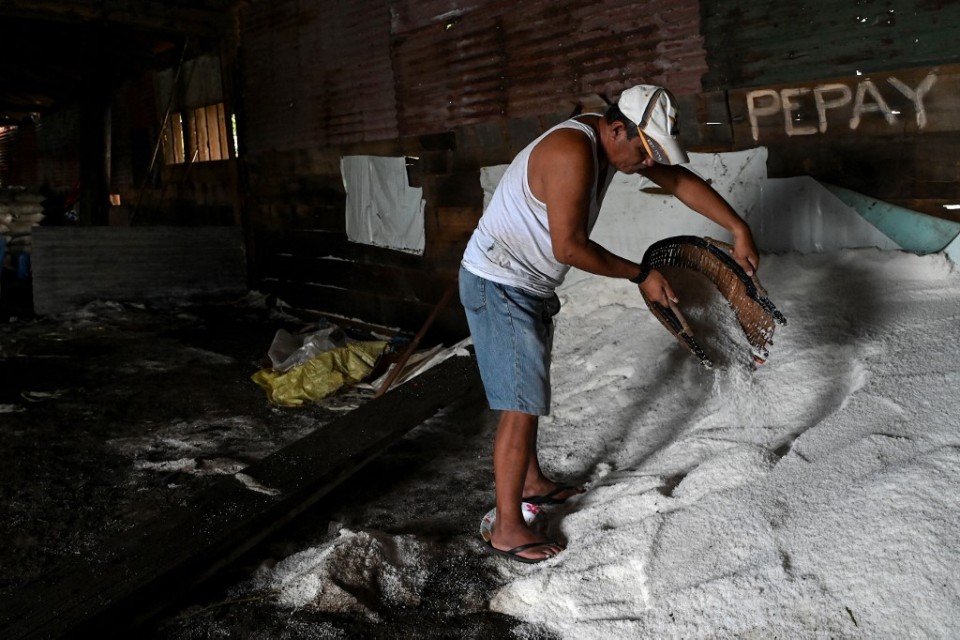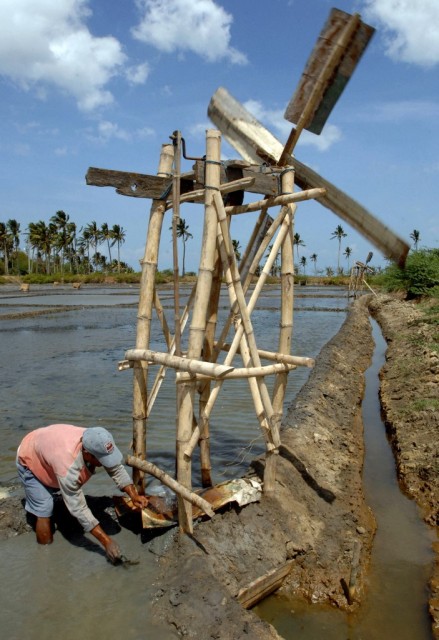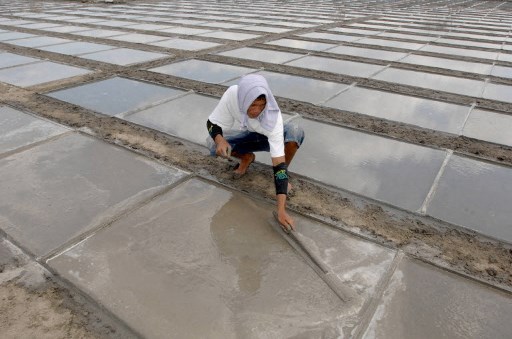DTI okays salt price hike saying this was long overdue, assures public that supplies still sufficient

(Eagle News) – The Philippine government said it would work on helping the local salt manufacturing industry since most of the country’s salt supplies were imported.
“To date, the country has been importing 93% of its salt supply, an unfortunate circumstance to a country with 36,000 kilometers of shoreline,” the Department of Agriculture said in a release.
The DA said it would collaborate with national agencies including the Department of Environment and Natural Resources (DENR), and Trade and Industry (DTI).
Under the existing law, Republic Act 8172, or the Act for Salt Iodization Nationwide (ASIN), the DENR , along with other appropriate government agencies shall identify areas that are suitable for use as salt farm. This is to protect such areas from environmental risks to ensure sustainability of iodized salt production.
The DTI, on the other hand, will support local salt producers and manufacturers to upgrade their production technologies to include iodizing salt. It would help the local manufacturers to get soft loans and financial assistance for “the procurement of salt iodization machines, packaging equipment and technology and fortificant.”


-Research and dev’t, technical assistance for salt makers-
“The DA, thru the Bureau of Fisheries and Aquatic Resources (BFAR), will lead various research and development activities and provide technical assistance to marginal and artisanal salt makers,” the department said in a release.
BFAR said it had already “set in motion” last year a P100-million Development of the Salt Industry Project (DSIP) under the Special Budget Request (SBR) of the Congressional-Introduced Initiative Project.
This covers Regions 1, 6, and 9. The project aims to “increase salt production and produce excellent quality of salt through enhancement and improvement of the different methods and practices on salt production, and product compliance to food safety standards.”
-Salt supplies in the country still sufficient – DTI-
Last week, the DTI assured the public that there is still a sufficient salt supply as it approved an increase in the price of salt.
DTI Undersecretary Ruth Castelo said that there would be no salt shortage as the country has four large salt manufacturers and still a lot of imported salt supplies.
The DTI granted the request to increase salt prices, saying these prices have been unchanged for about six years.
“Itong mga manufacturers na ito ay sobrang tagal na na hindi nagtataas ng presyo. Parang umabot na ng four, five, six years bago sila nag-request ulit. So sa computations natin, talaga namang dapat lang na itaas natin ang presyo,” Castelo said.
The SRP for iodized rock salt was set at PHP21.75 for 500 grams and PHP23 for 1 kg.
The DTI also approved the PHP4.50 SRP for a 100-gram pack of iodized salt; PHP9 to PHP12.75 for 250 grams; PHP16 to PHP23.25 for 500 grams; and PHP29 for 1 kg.
The government assured the public that various national government agencies will work closely to enhance the development of the local salt industry, and enable the sector to be self-sufficient.
(Eagle News Service with a PNA report)








